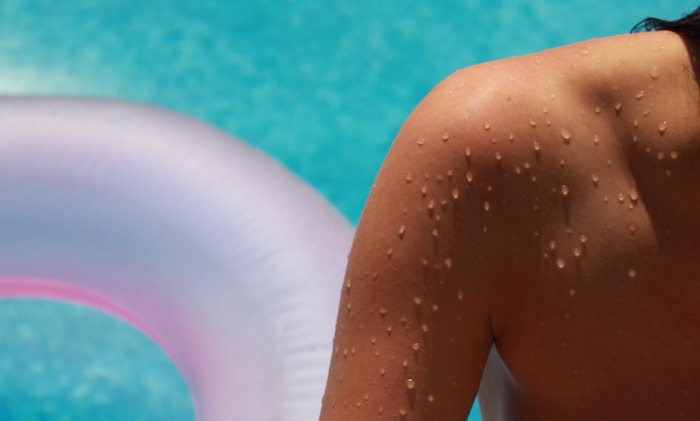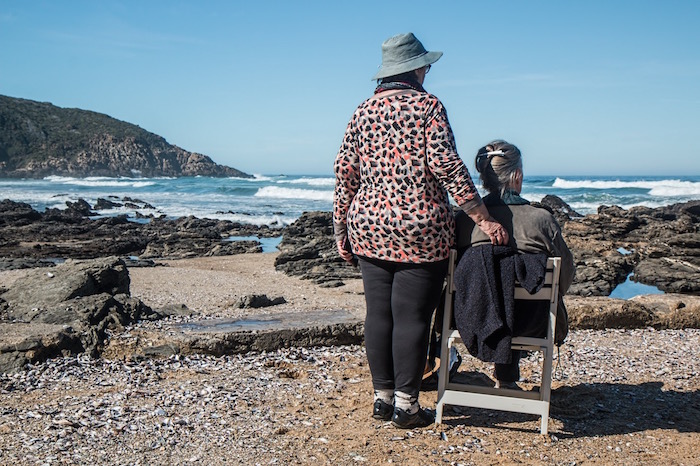

Think living in sunny Singapore exempts us from Vitamin D deficiency, mama? Think again!
How much do you really know about Vitamin D, mama? Important for bone and muscle health, our daily Vitamin D intake affects the overall health of our bodies. Most people think living in a tropical climate like Singapore’s means we’re all good in that department, but the experts at Brightest.com say we have to start working harder for our daily dose of the ‘Sunshine Vitamin’.
Read on below as they debunk the top myths on Vitamin D!


Myth #1: People who live in tropical countries like Singapore are not Vitamin D deficient
This can’t be further from the truth! Studies have shown high levels of Vitamin D deficiency even in tropical countries. It’s even more apparent in Asian countries, where we often tend to shield ourselves from the sun or apply more sunscreen to protect ourselves from skin damage.
Myth #2: Vitamin D is only for bone health
Research has shown Vitamin D is linked to benefits for a whole range of functions in the body. Besides regulating the immune system and helping the body to absorb calcium and phosphorous for good bone health, it plays an important role in cognition by keeping us sharp, thus helping us to prevent falls and also adequately react to them in case they happen.


Myth #3: Vitamin D is only for the elderly
As older folks are more prone to Vitamin D deficiency, many people think focusing on getting enough of it is something they can worry about later. Turns out, it’s important to have adequate Vitamin D early in life to help increase peak bone mass, which will help to alleviate diseases linked to Vitamin D deficiency such as osteoporosis, a condition of fragile bones which typically takes place later in life. Vitamin D is especially important for expectant mothers and babies in order to prevent gestational diabetes, weakness in the immune system and asthma.
Myth #4: We can get adequate amounts of Vitamin D through the food we consume
Vitamin D is not a naturally occurring vitamin in most foods, which makes it extremely difficult to achieve the recommended intake of vitamin D from the diet alone. Only a limited number of foods such as egg yolks and fatty fish contain significant amounts, but can you imagine yourself consuming large quantities of those every single day, mama (or worse, getting the kiddos to eat them!)? We didn’t think so!


Other facts to know about the ‘Sunshine Vitamin’
- A range of diseases affect women differently than men due to crucial differences in biology and behaviour, and a lack of Vitamin D is a prime example. Women tend to start with a lower bone mass than men. On top of that, a decrease in estrogen levels after menopause in women accelerates bone loss, making women more vulnerable to developing osteoporosis than men, driving the need for generous Vitamin D intake earlier in life.
- Vitamin D is also especially vital during pregnancy. It helps to build and maintain healthy bones, and a low vitamin D status during pregnancy may increase the risk of complications such as preeclampsia, and adverse outcomes for the baby such as unhealthy fetal bone development or low birth weight. Despite the importance of adequate vitamin D status during pregnancy, most studies in Asian countries reported that anywhere from two thirds to well above 90% of pregnant women were vitamin D deficient!
- A lack of the vitamin has also been linked with increased risk for postpartum depression. Given that women are approximately twice as likely to suffer from depression and tend to have more severe symptoms compared to men, this further highlights the importance of paying attention to Vitamin D!
- Low Vitamin D in older women increases the risk of developing dementia and Alzheimer’s disease. As the number of people aged 65 years and above is estimated to increase significantly in the coming decades, the number of people – particularly women – affected by the disease will also increase. Despite intensive research, there is currently no treatment available to cure the disease – but it’s up to us to decrease our chances by upping our dosage of Vitamin D.


How to achieve an optimal level of Vitamin D
- Take dietary supplements that include Vitamin D – they’re a low-cost, safe and effective way to ensure you’re fulfilling all your nutritional needs.
- Enrich your diet with fortified foods such as milk, juice or cereals with added Vitamin D, and Vitamin D-rich foods such as oily fish and eggs.
- Get out there and soak in the sunshine! It’s important to douse yourself with a moderate but regular amount of sunlight, mama. Everything in moderation, they say!
![]()
![]()
- Regitz-Zagrosek, V., Sex and gender differences in health: Science & Society Series on Sex and Science.EMBO Reports, 2012. 13(7): p. 596-603.
- Wahl, D.A., et al., A global representation of vitamin D status in healthy populations.Archives of Osteoporosis, 2012. 7: p. 155-72.
- Trilok Kumar, G., R. Chugh, and M. Eggersdorfer, Poor Vitamin D Status in Healthy Populations in India: A Review of Current Evidence.International Journal for Vitamin and Nutrition Research, 2015. 85(3-4): p. 185-201.
- Lane, N.E., Epidemiology, etiology, and diagnosis of osteoporosis.American Journal of Obstetrics and Gynecology, 2006.194(2, Supplement): p. S3-S11.
- Thulkar, J., et al., Preventable risk factors for osteoporosis in postmenopausal women: Systematic review and meta-analysis.Journal of Mid-Life Health, 2016. 7(3): p. 108-113.
- World Health Organization, Assessment of fracture risk and its application to screening for postmenopausal osteoporosis, in Report of a WHO study group. 1994, World Health Organization: Geneva, Switzerland.
- Holick, M.F., Sunlight and vitamin D for bone health and prevention of autoimmune diseases, cancers, and cardiovascular disease.The American Journal of Clinical Nutrition, 2004. 80(6): p. 1678S-1688S.
- El-Hajj Fuleihan, G., Effect of Vitamin D Replacement on Musculoskeletal Parameters in School Children: A Randomized Controlled Trial.Journal of Clinical Endocrinology & Metabolism, 2005. 91(2): p. 405-412.
- Mahon, P., et al., Low maternal vitamin D status and fetal bone development: cohort study.Journal of bone and mineral research, 2010. 25(1): p. 14-19.
- Zhu, K., et al., Maternal Vitamin D Status During Pregnancy and Bone Mass in Offspring at 20 Years of Age: A Prospective Cohort Study.Journal of Bone and Mineral Research, 2013: p. n/a-n/a.
- Thandrayen, K. and J.M. Pettifor, Maternal Vitamin D Status: Implications for the Development of Infantile Nutritional Rickets.Rheumatic Disease Clinics, 2012. 38(1): p. 61-79.
- Elsori, D.H. and M.S. Hammoud, Vitamin D deficiency in mothers, neonates and children.J Steroid Biochem Mol Biol, 2017.
- Wagner, C.L., et al., Vitamin D administration during pregnancy as prevention for pregnancy, neonatal and postnatal complications.Reviews in Endocrine and Metabolic Disorders, 2017: p. 1-16.
- Sowell, K.D., C.L. Keen, and J.Y. Uriu-Adams, Vitamin D and Reproduction: From Gametes to Childhood.Healthcare (Basel), 2015. 3(4): p. 1097-120.
- Gur, E.B., et al., The effect of vitamin D level in pregnancy on postpartum depression.Archives of Women's Mental Health, 2015. 18(2): p. 263-264.
- Saraf, R., et al., Global summary of maternal and newborn vitamin D status – a systematic review.Maternal & Child Nutrition, 2016. 12(4): p. 647-668.
- Parker, G.B., H. Brotchie, and R.K. Graham, Vitamin D and depression.Journal of Affective Disorders, 2017. 208: p. 56-61.
- Buell, J.S. and B. Dawson-Hughes, Vitamin D and Neurocognitive Dysfunction: Preventing “D”ecline?Mol Aspects Med., 2008. 29: p. 415-422.
- Marcelli, C., C. Chavoix, and P. Dargent-Molina, Beneficial effects of vitamin D on falls and fractures: is cognition rather than bone or muscle behind these benefits?Osteoporosis International, 2015. 26(1): p. 1-10.
- Feng, X., et al., The vitamin D status and its effects on life quality among the elderly in Jinan, China.Arch Gerontol Geriatr, 2016. 62: p. 26-9.
- Annweiler, C., et al., Serum vitamin D deficiency as a predictor of incident non-Alzheimer dementias: a 7-year longitudinal study.Dement Geriatr Cogn Disord, 2011. 32(4): p. 273-8.
- Annweiler, C., et al., Higher Vitamin D Dietary Intake Is Associated With Lower Risk of Alzheimer’s Disease: A 7-Year Follow-up.The Journals of Gerontology Series A: Biological Sciences and Medical Sciences, 2012. 67(11): p. 1205-1211.






 View All
View All





 View All
View All







 View All
View All







